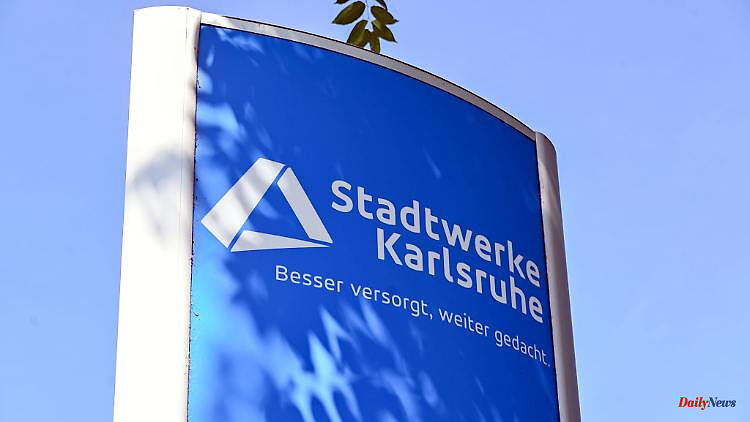Electricity and gas prices are rising sharply. This is also becoming a problem for municipal utilities. And representatives of municipal companies think little of some traffic light plans to limit the loads.
Ulm (dpa / lsw) - The approximately 100 municipal utilities in Baden-Württemberg are preparing for increasing payment defaults by customers in view of the high burdens caused by energy prices. "There are estimates that five to ten percent of customer payments could be lost at municipal utilities," said Klaus Eder, chairman of the regional group of the Association of Municipal Enterprises (VKU), the German Press Agency in Ulm. Normally, the failure rate is less than one percent. A loss of five percent of the income means a loss of 17 million euros for the Ulm municipal works.
Eder, who is also the head of the municipal utility in Ulm, said the energy suppliers were experiencing an unprecedented situation. "Prices for electricity and gas have increased by a factor of 10 to 15 from March 2020 to today." You have to pass the cost on to the customer. It could be that one or the other company in the country will not survive the crisis and will have to go bankrupt. "There are already individual municipal utilities where the municipalities have had to increase their deposits."
According to the ideas of the traffic light coalition of the SPD, Greens and FDP, private households and smaller companies should receive the amount of electricity for "basic consumption" at a reduced price with the help of "accidental profits" skimmed off from suppliers, among other things. The so-called electricity price brake applies to this amount of electricity.
The VKU representative rated this proposal as particularly critical. Eder said: "It doesn't make sense to intervene in the existing market and introduce an electricity price brake. It would be better to reduce taxes on gas and electricity. This would lead to permanent relief." And it makes no sense to distribute 300 euros in energy money across the population.












